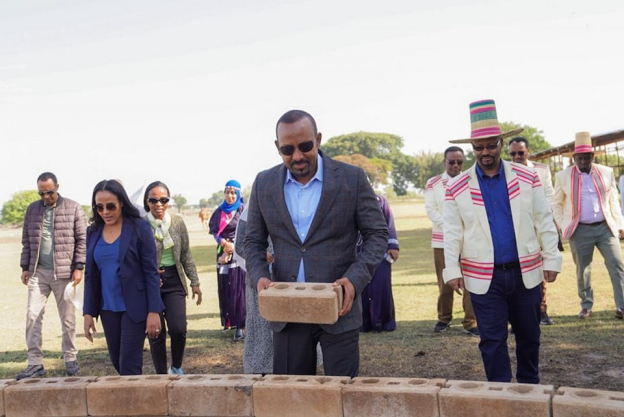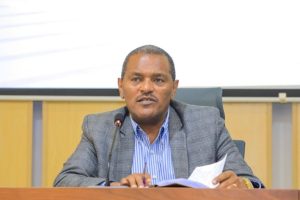
In recent years, Ethiopia has been implementing an urban corridor development that is set to transform the lives of millions of people living in Addis Ababa and other cities. This innovative project aims to improve access to essential services, create economic opportunities, and enhance overall quality of life for those living in the urban communities.
With bold ambition and strategic foresight, the government of Ethiopia has launched the rural corridor development initiative, a transformative program aimed at linking isolated communities to markets, services, and opportunities through integrated infrastructure corridors.
Thus, the main goals of the Ethiopian rural corridor development initiative are to reduce poverty, improve living standards, and promote sustainable development in rural areas. By investing in key infrastructure projects and fostering collaboration between government agencies, development partners, and local communities, the initiative seeks to empower rural residents and create a more inclusive and resilient society.
In doing so, the initiative has become a comprehensive project designed to enhance infrastructure, social services, and economic opportunities in rural areas. By focusing on the development of transportation corridors that connect remote communities to urban centers, this initiative aims to bridge the gap between urban and rural areas and improve the overall quality of life for residents.
Recently, Prime Minister Abiy Ahmed (PhD) said, the rural corridors initiative, launched to improve the livelihoods of rural communities, is now expanding to all areas.
“We have commenced the construction of model rural villages as part of the rural corridor development in Wera Dijo Woreda, Sinbita Kebele, Halaba Zone, in the Central Ethiopia Region,” the Prime Minister shared on social media pages.
These model villages are low-cost and will be constructed using locally available resources, allowing farmers to lead healthy and dignified lives.
In the surrounding area, over 2,000 hectares of land are being irrigated, according to the Premier.
Prime Minister Abiy further elaborated that: “High-quality maize seeds are being multiplied, alongside the cultivation of vegetables and fruits—transforming a region once plagued by floods and droughts into a model of sustainable development.”
Prime Minister Abiy Ahmed shared on social media pages that, rural corridor development is a national initiative with a broad vision to transform the country.
As part of this effort, the Prime Minister has launched the rural corridor development project in Hamido Kebele, located in the Adilo District of the Nebata Zone, in the Central Ethiopia Region.
“During our visit, we also met a model farmer who has set an outstanding example by creating a clean, healthy, and visually appealing homestead,” the Premier stated.
In addition to maintaining a well-organized, clean-living environment, Abiy also indicated that this farmer is also actively engaged in the ‘Bounty of the Basket’ initiative and vegetable and fruit cultivation in his own compound.
“This commendable work should be expanded to other areas through collaborative efforts,” the Prime minister underlined.
Equally impressive are the community-driven initiatives to transform Mount Hambaricho, a distinctive natural landmark in the zone, into an eco-tourism destination.
The construction of 777 climbing steps has made the mountain more accessible, offering a unique experience for tourists who enjoy hiking and bird watching.
Prime Minister Abiy Ahmed emphasized that a series of goodwill development projects are currently being implemented in connection with the national rural corridor development initiative.
As part of the ongoing efforts, a pilot project has been launched to establish a model rural village in Dubancho Kebele, located in Lemo Woreda of the Hadiya Zone, he noted.
In a social media post, Prime Minister Abiy underscored that the demonstration village aims to improve the quality of life for local farmers.
“The construction of these demonstration villages is expected to improve farmers’ quality of life while supporting their continued engagement in agriculture.” PM Abiy stated.
Prime Minister Abiy Ahmed has launched the construction of the fourth model farmers’ village in Werabet Shama Kebele, Hulbareg Woreda, Silte Zone, of the Central Ethiopia region, which is a part of the rainy season goodwill/volunteer initiative.
Once completed, these homes will significantly improve the livelihoods of local farmers and promote a healthier standard of living, the Prime Minister shared on his social media channels.
“During our visit to the zone, we also observed encouraging private sector participation in the agro-industry. As an example, we toured the Atot Integrated Agro-Industry,” he said.
The Premier further underscored that initiatives like this should be encouraged, as they align well with the broader objectives set forth in the Bounty of the Basket initiative.
At the core of the initiative lies a powerful idea, development follows infrastructure. By building corridors that combine transportation networks with utilities, digital connectivity, and agro-industrial hubs, the initiative seeks to foster inclusive and sustainable growth. These corridors sought to serve as economic arteries; stimulating agriculture, enhancing trade, improving access to education and health, and reducing regional inequality.
Moreover, it is described the initiative as a game changer in Ethiopia’s development narrative. Rural corridor development is not only about roads. It is about transforming lives, empowering communities, and driving resilience in the face of climate and economic shocks. The initiative also integrates climate resilience and gender inclusivity into its design. Green infrastructure such as reforestation belts, soil erosion control, and renewable energy systems is being embedded into corridor development to ensure environmental sustainability.
In sum, the Ethiopian rural corridor development Initiative has the potential to be a game-changer for millions of people living in remote areas. By improving infrastructure, increasing access to essential services, and fostering economic opportunities, this innovative program is set to transform lives and create a more prosperous and inclusive society for all Ethiopians. As the initiative continues to take shape, it is essential that all stakeholders work together to ensure its success and maximize its impact on the Ethiopian population.
BY TEWODROS KASSA
THE ETHIOPIAN HERALD SUNDAY EDITION 8 JUNE 2025




